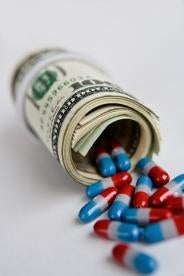The US Department of Health and Human Services and the Health Resources and Services Administration recently issued final rules related to the 340B Drug Pricing Program that impose fines on drug manufacturers that overcharge hospitals and other entities participating in the 340B Program and establish a system for calculating ceiling prices for covered outpatient drugs.
In Depth
On January 4, 2017, the US Department of Health and Human Resources (HHS) and the Health Resources and Services Administration (HRSA) issued final rules related to the 340B Drug Pricing Program (340B Program). Specifically, the final rules impose fines on drug manufacturers that overcharge hospitals and other entities participating in the 340B Program (Covered Entities) for medication purchased under the 340B Program. In addition, the rules establish a system for calculating maximum prices (referred to as “ceiling prices”) for covered outpatient drugs. Although the rules are effective February 28, 2017, HRSA will begin enforcing the requirements on April 1, 2017, to give manufacturers time to adjust their systems and update their policies and procedures based on the final rules.
The proposed rule was released on June 16, 2015, with the comment period closing in 2015, but HHS reopened the comment period in 2016 to allow for comments on (1) 340B ceiling price calculations that result in a “ceiling price” that equals zero, (2) the methodology that manufacturers use when estimating the ceiling price for a new covered outpatient drug and (3) the definition of the “knowingly and intentionally” standard for manufacturer civil monetary penalties.
You can read our prior summary and analysis in our article “Proposed Rules Released Covering 340B Ceiling Prices and Manufacturer Penalties.”
Fines for Overcharging 340B Covered Entities
The final rules implement civil monetary penalties (CMPs) on manufacturers who knowingly and intentionally charge Covered Entities an amount greater than the ceiling price for a given 340B drug. Such CMPs may not exceed $5,000 for each instance of overcharging. A single instance of overcharging is defined as each order for a 340B drug, regardless of the number of units ordered. In the final rules, HHS provided the following example: if a Covered Entity orders a single bottle of a covered outpatient drug four times in a month for which it is overcharged, this is considered four instances of overcharging. Manufacturers that overcharge a Covered Entity for a 340B drug must offer a refund to the Covered Entity within 120 days of the determination by the manufacturer that an overcharge occurred.
In addition, HHS clarified in the final rules that manufacturers are ultimately responsible for ensuring that a Covered Entity receives 340B drugs at or below the applicable 340B ceiling price. Although other third parties play a part in ensuring Covered Entities receive 340B drugs at or below the applicable 340B ceiling price, the final rules apply solely to manufacturers. HHS stated that a manufacturer’s failure to ensure that Covered Entities receive 340B ceiling prices through a third party “may be grounds for the assessment of CMPs” against the manufacturer.
Despite the implementation of CMPs under the final rules, HHS has expressed an expectation that instances of overcharging generally be resolved between a manufacturer and affected Covered Entity (as such issues have historically been resolved). HHS has indicated that it envisions the use of CMPs only “in rare situations,” and has indicated that it would limit CMPs to overcharges that result from a knowing, intentional act and not, for instance, overcharges resulting from technical errors in calculations.
Ceiling Prices for Outpatient Drugs
As a condition of participation in the Medicaid program, a drug manufacturer must sign a pharmaceutical pricing agreement with HHS, under which the manufacturer agrees to limit the amounts it charges Covered Entities for 340B-eligible drugs. Manufacturers are required to calculate the ceiling price for each 340B drug on a quarterly basis. Under the final rules, the ceiling price of a 340B drug will be calculated by subtracting a drug’s “Unit Rebate Amount” from the “Average Manufacturer Price” (AMP) for such drug. The ceiling price will be calculated at the smallest unit of measure, to six decimal places. Where the calculated ceiling price for a given 340B drug is less than or equal to $0.00, the final rules require a manufacturer to charge $0.01 per unit for such drug. HRSA will be required to publish all 340B ceiling prices, rounded to two decimal places.
Under the proposed rules, when a new 340B drug is first made available, the manufacturer of such drug would have been required to estimate the ceiling price of the drug for the first three quarters in which the drug was available for sale. However, after considering the comments received, HHS modified the final rules to require that manufacturers use a standardized methodology to estimate the 340B ceiling price for a new covered outpatient drug until there is AMP data available to calculate an actual 340B ceiling price. As described in the final rules, the methodology ceiling price for a new 340B drug will be calculated as the wholesale acquisition cost (WAC) of the drug, less the appropriate rebate percentage. Once the AMP is known to the manufacturer—which should be no later than the fourth quarter that the drug is available for sale—manufacturers are required to calculate the actual 340B ceiling price and offer to repay the Covered Entity the difference between the estimated 340B ceiling price and the actual 340B ceiling price within 120 days of the determination by the manufacturer that an overcharge occurred.
HHS had reopened the rules’ comment period to solicit comments about “penny pricing”—when ceiling price calculations result in a ceiling price that equals a zero. After consideration of the comments received, HHS is finalizing the penny pricing policy as proposed: when the 340B ceiling price calculation resulted in an amount less than $0.01, a manufacturer charges a $0.01 per unit of measure. This policy is consistent with the long-standing 340B Program penny pricing policy. HHS noted that a manufacturer controls when a product reaches a zero 340B ceiling price through its own pricing decisions. If a manufacturer does not wish to offer a zero 340B ceiling price, the manufacturer may choose not to participate in the 340B Program or may alter its drug pricing practices so as not to cause a zero 340B ceiling price.
Future Rulemaking
During the comment periods to these final rules, HHS received certain comments requesting that HHS address all 340B Program integrity improvements required by the Affordable Care Act (ACA) simultaneously. In response, HHS advised that it will issue separate rulemakings for the different improvements mandated by the ACA, beginning with the final rules on CMPs for manufacturers. HHS has published a proposed rule related to the administrative dispute resolution process (issued August 12, 2016) and intends to publish a final rule after comments to the proposed rule have been reviewed and considered.
Read our coverage of the proposed rule in our article “HHS Proposes Administrative Dispute Resolution Process for 340B-Related Claims."






 i
i


